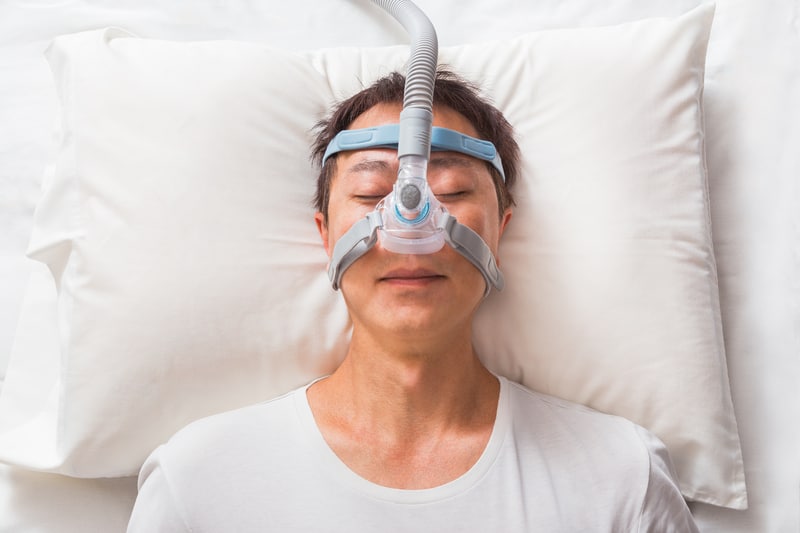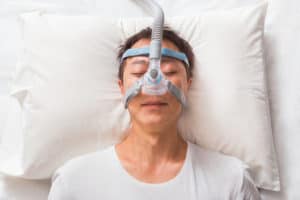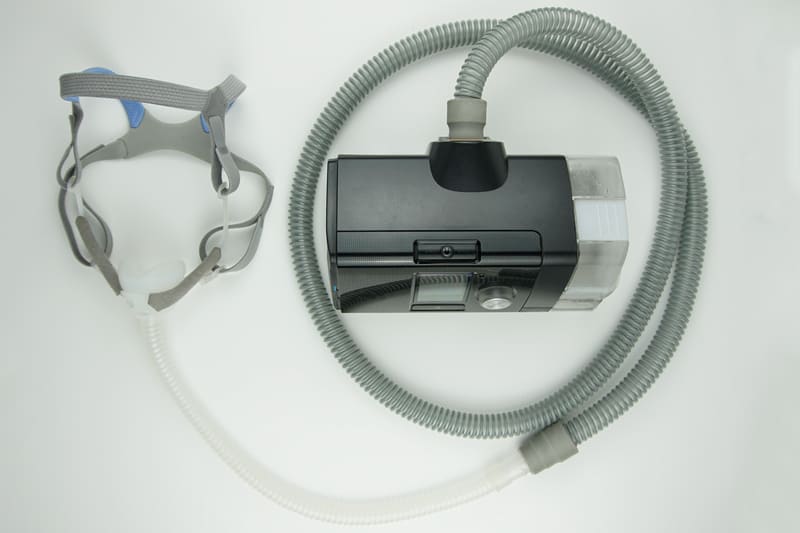How long do you need to use CPAP?
A complex question with multiple answers.
Let’s dive in.
The Quest for healthier sleep is an ongoing journey for most. And an area of intense research. There are two facets to the question, how long do I have to use CPAP and is it for the rest of my life? I’ll address them separately.
1. How many hours a night do I have to use it?
The best scenario is to use it for the entire night. The whole point of using CPAP is to get oxygen into your body and the C02 out. That’s it. It just so happens also to have the side effect of stopping the snoring keeping your bed partner happy and giving you more energy.
If insurance is paying for the CPAP likely they want to see a minimum of 4 hours of usage nightly. They watch it for the first 90 days. Some insurances will continue to watch usage so they are not wasting money on the soft goods.
Good news on the research front. There has been some recent research that as few as 4 hours is good enough for some folks to feel better the next day. This is something you’ll have to try and test out for yourself. I usually will say if you start snoring after you take the mask off put it back on.
Can You take a short vacation without it?
Now, I’m going to walk that back a bit. With consistent nightly usage for a few months, you might be able to cheat a bit. If you can go a night or two without someone telling you, you are snoring great. You might have developed a little muscle retention. Usually by the end of a few nights, your airway has begun to relax enough that the snoring and apnea are back. Wearables such as rings and watches might be of help here too. Just a thought vacations cost lots of money, wouldn’t you rather have the energy to enjoy them? Different items on the market might help here, such as mouth appliances, and small interfaces that you put just in your nose that cause your airway to stay open.
If you have any heart issues please take it with you and use it.
2. Is CPAP Usage Lifelong?
The answer varies depending on individual circumstances.
I’ve tried to break it down into several scenarios I have often worked with.
- Lots of folks love cpap: For some, CPAP therapy becomes a comfortable part of their routine, fitting seamlessly into their lifestyle. They may not wish to make significant lifestyle changes, like altering their diet or exercise habits. CPAP allows them to manage their sleep apnea effectively, and they choose to use it long-term.
- Age-Related Factors: As we age, changes in our bodies, including hormonal shifts and physical alterations, can make sleep apnea more prevalent. For many older individuals, CPAP becomes a necessary tool for maintaining quality health. This was the category I fell into later in my career with sleep. I have noticed that some clients in their 60s, 70s, and even into the 80s can change this. I still suggest starting on CPAP and then start working on diet and hormones. Which is what I did and it worked.
- The Athlete’s Reality: Even physically fit individuals, such as athletes, may have narrow airways or a muscular neck that require CPAP therapy to protect their heart health. I’ve had professional football, baseball, and basketball players as clients. Every so often a young football player dies in their sleep and this makes the news. An influx of players started to investigate the possibility of needing PAP therapy.
- Even thin builds: Some clients are naturally thin. They tend to have narrow airways and use high pressures to keep them open. They will need to use PAP therapy for heart health. While alternatives exist, such as surgeries, they can be painful and may not guarantee success. The only long-term is a tracheostomy. It does work but you have a permanent hole in your airway and hooking yourself up to a ventilator every night.
- My favorite group. (and yes, we can have favorites) There is a group of clients that transition away from CPAP. Sleep apnea often leads to weight gain, triggering a release of cortisol that accumulates around the abdomen. This becomes a vicious cycle that keeps the pounds on. Shedding even a modest amount of weight can significantly improve sleep apnea symptoms. If your sleep apnea is weight-related, CPAP can be a supportive tool while you embark on your weight loss journey. For me, a mere 5lbs means I have a case of mild Sleep Apnea. If you have weight-related sleep apnea, that’s great! Stay on the CPAP while you begin the process of change.
What must you change?
To embark on a path toward reduced CPAP reliance or eventual cessation, it’s imperative to address the root causes of sleep apnea. Here’s a roadmap for change:
We all know in our gut what we need to change. Such as putting down that extra cookie or maybe eating more veggies. Walk a bit more. Right, you know this. But first, you need to acquire a little energy.
- Consistent CPAP Use: Start by using CPAP therapy consistently to gain energy and improve sleep quality. So you have the energy to make good health decisions. If you’re tired you will not make good decisions with food. You will crave more sugar and the foods that break down to sugars in your body.
- Consult a Healthcare Professional: Seek guidance from a Functional Doctor or healthcare provider to find out your unique needs and design an effective strategy for change. I love using them. You can get all your tests done and find out what is needed in your diet. Lots of the tests needed can be found online which is fine if you are confident on how to read them.
- Dietary Adjustments: Evaluate your diet and make necessary changes, such as eliminating problematic foods that hinder sleep and overall health. This is where the food allergies test comes in. I found out I was allergic to green beans. That’s just crazy. By cutting them out my gut was able to heal.
- Stress Management: Identify and manage stressors in your life, as stress can exacerbate weight gain and sleep apnea.
- Weight Management: If weight is a contributing factor, focus on gradual and sustainable weight loss. Again this is hard when you are tired. What foods are making you tired? It would be nice if you could just change 100% of your diet. But that’s usually not a reality for most. We usually don’t have that much self-control. And when you are tired you have no self-control. I suggest you start by changing one food group. Such as, start with adding more veggies to each meal. Eat these first. Then go to your regular meal. As you keep adding more veggies you will get filled up on them and not want to eat much else. Or simply cut out all the items in your diet that have a sugar component to them. Such as candy, cookies, too much fruit, but also bread and pasta. Either method works. As long as you track it and keep progressing.
At times we all require a bit of assistance on our health journey. The paths may vary but they are achievable as long as you have the desire to reach the destination.




